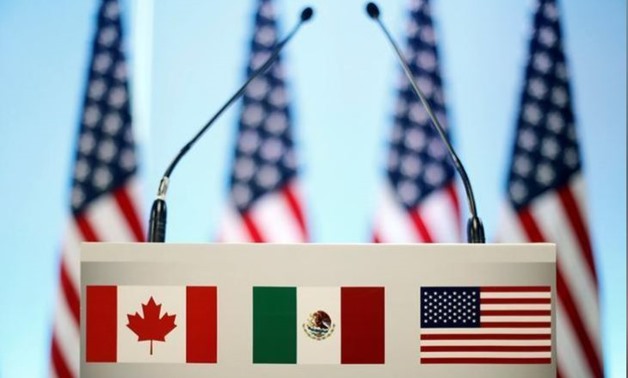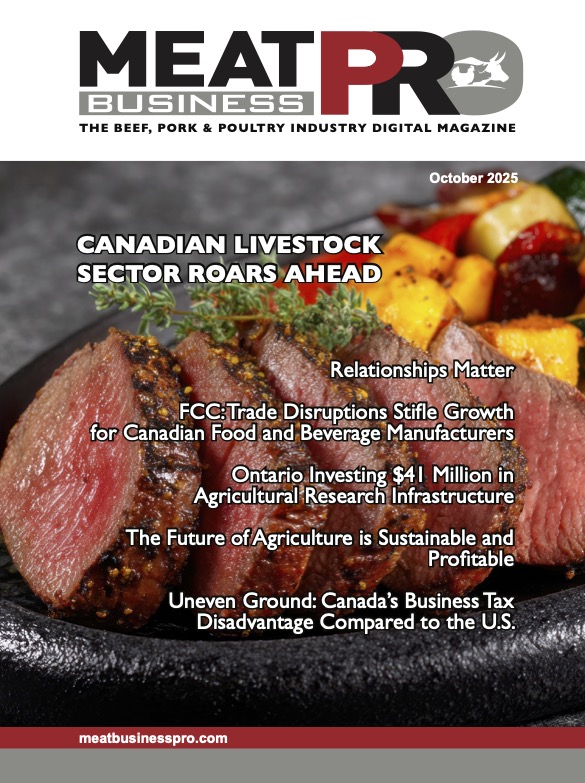International Trade in 2018: Making Sense Of A Tarrifying Year

“The fact that Donald Trump carried through with steel and aluminum tariffs,” said Mark Agnew, director of international policy for the Canadian Chamber of Commerce. “People thought, Surely he’s not going to do this against Canada. ” They thought wrong.
by Janyce McGregor – CBC News
“That really shocked me,” agreed Debra Steger, a former Canadian trade official now on the University of Ottawa’s law faculty, adding that Trump’s escalating tariff strategy over the last year caused a “ripple effect” of consequences — including retaliatory tariffs from other countries, Canada among them.
“Everything has been driven by the initial tarrifying actions that were deliberately taken by the United States as a cudgel over everyone’s heads to negotiate,” she said.
(Her use of the word ‘tarrifying’ serves double-duty as a pun. Trump’s indiscriminate use of tarrifs is terrifying for those who believe in international trade law.)
The new level of bullying was a surprise, she said. “We had never seen U.S. administrations behave that way before.”
“I thought this government was too pro-business to allow (the tariffs) to stay in place,” said Todd Tucker, a fellow at Washington D.C.’s Roosevelt Institute. “I underestimated the way Republicans rallied around Trump.”
“The very negative rhetoric and some of the missteps along the way have created the conditions that we may look back in 20 years and say this fundamentally changed the Canada–U.S. relationship”
Inu Manak, a Canadian trade researcher who now works at the Cato Institute, said she was caught off-guard by the level of Trump’s hostility toward Canada.
“At first I thought maybe he’s just joking around, and it’s a negotiating tactic,” she said.
But the tariffs persist, even after the revised North American trade agreement was signed.
“It was genuinely shocking, and genuinely negative for the bilateral relationship,” said Meredith Lilly, the Simon Reisman chair at Carleton University’s Norman Paterson School of International Affairs.
What don’t people get?
“I don’t think the average person understood how completely integrated we are with the U.S. economy, and how foolish the idea that we would tell the Americans to bugger off would be,” said Flavio Volpe, president of the Automotive Parts Manufacturer’s Association.
Trump’s presidential powers became a topic of fierce legal debate in 2018. Can he just terminate NAFTA if Congress won’t ratify the revisions he wants?
The U.S. presidency has been given a lot of authority over trade matters over the years, Manak said, but “the fact that this Congress has not pushed back a lot on a lot of stuff he’s done, doesn’t mean they can’t.”
That’s why the election of a Democratic majority in the House of Representatives in November could be “a little destabilizing,” but good for the democratic process, she said.
“There’s the strong impression that he can just unilaterally go back to pre-NAFTA tariffs on Canada and Mexico,” Tucker said. “I don’t know any constitutional law professor that thinks that.”
The public and partisan debate over Trump’s powers has generated more “heat than light,” he said, by not properly acknowledging that Congressional authority over tariffs.
Brian Kingston, vice-president for international and fiscal policy with the Business Council of Canada, said he thinks the Canadian public hasn’t properly grasped the role of Congress in trade deals, either.
But the Canadian government gets it, he said, “hence their very comprehensive lobbying and advocacy campaign” — especially important as long as Congressional ratification remains uncertain.
Trade lawyer Mark Warner doesn’t buy the argument that Trump can’t unilaterally terminate a trade treaty and throw everything into chaos.
The Canadian negotiators, Warner said, should have agreed to a deal earlier in the year, before the tariffs landed — even if that meant conceding more.
He said he thinks Ottawa misjudged the dynamics of the NAFTA negotiations from the start.
“The idea that Mexico was joined at the hip with Canada and wouldn’t go out on its own … it just didn’t make a lot of sense,” he said. “Our interests are not completely aligned and it’s something that we have now learned.”
What stories were overblown?
Lilly said she found the NAFTA negotiations were generally overhyped, with a lot of “false drama” coming from the Canadian side before the talks ended with a deal that turned out to be quite predictable.
“Much ado about very little change,” agreed Monica de Bolle, senior fellow at the Peterson Institute for International Economics. “Very anticlimactic.”
Her office did a lot of work trying to anticipate the disruption Trump’s threatened auto tariffs might trigger. But despite the hype, those tariffs haven’t materialized.
At least, not yet. (The U.S. Commerce Department report on whether automotive imports are a “national security” threat is due by February.)
“We were all concerned about ‘carmageddon,'” Volpe said, “but I wonder if the Americans would have pulled that trigger, because the bullet would have gone through both of us.”
Agnew said the debate over Canada insisting on a cultural exemption also offered more drama than substance.
“In the end it was the dog that didn’t bark, with the retention of the exemption.”
Another new feature in NAFTA 2.0 — article 32.10 on negotiating a trade deal with a “non-market economy” (read: China) — will have “very little impact,” said Carlo Dade, director of the trade and investment centre at the Canada West Foundation.
“I don’t think it’s a total nothing, but it’s certainly not going to take away Canadian sovereignty and Canada’s ability to negotiate with China in the future,” Steger said.
What warranted more discussion?
“If there is a Russian strategy to undermine multilateralism and U.S. leadership of the global economy, it’s really more about economics than it is about defence,” said George Washington University’s Susan Aaronson.
The most competitive Canadian and American exports in the future will be agricultural commodities and services. But for both export sectors to succeed, they need trusted partners in world markets and a strong global consensus on what constitutes appropriate behaviour, Aaronson said.
Trump undermined all this, she said, which hurt Canada’s integrated economy — and left the Trudeau government little choice but to diversify its trade through other deals.
“It’s a good thing Canada’s doing that,” Aaronson said, “but in the long run, it’s a bad thing.” North America, she said, is more competitive when it works together. Plus, the world will miss U.S. leadership on trade — and it might not like what replaces it.
“We haven’t talked enough about what happens to Latin American relations in the middle of the confusion over the China-U.S. relationship,” said de Bolle, an expert on the region. “The region is very complicated right now.”
The new left-leaning, nationalist Mexican administration, for example, has closer ties to China, de Bolle said. The foreign policy of Brazil’s new government, a major economic player, is “crazy to me,” she added. And the Chinese are also securing key oil resources in Venezuela, as that country’s economy continues to implode.
Trade lawyer Cyndee Todgham Cherniak said she thinks businesses are only just beginning to wake up to the consequences of politicians escalating economic sanctions against countries like Iran and Saudi Arabia. The arrest of a Huawei executive in Vancouver, she said, may be only the beginning.
Canada’s new Magnitsky Act — a law allowing Canada to go after the assets of foreign officials implicated in human rights violations — should get more attention, she added, particularly if it’s applied to Saudi Arabia. “It will have a significant effect on companies carrying on business worldwide.”
Long-term consequences?
The effects of what unfolded over the last year may be felt for years to come.
“The hardening American consensus around Chinese trade practices is something that is here to stay,” Warner said, “even if Trump is defeated in 2020.”
“You would have seen Hillary Clinton do some of the same things” on China, said Tucker.
But what the history books will emphasize is Trump’s use of “national security” as an excuse for protecting domestic steel and aluminum industries, Tucker argues. Other countries already have started to follow suit, bringing unprecedented instability to the global trade system Americans once fought to establish.
Dade calls Trump’s ongoing tariff war “the nuclear option.”
“The unthinkable has become normalized,” he said.
That puts a lot of pressure on countries like Canada, which are now being forced to pick a side.
“It’s going to affect every trade discussion that we have from now on,” Volpe said. “You’re going to have to know what the American position is before you even attempt a discussion with us.”
The American insistence on a sunset clause for NAFTA (even if it was watered down in the final text) reflects an increasing climate of protectionism in the U.S. that “isn’t a cyclical trend. That’s here to stay,” said Kingston.
“The very negative rhetoric and some of the missteps along the way have created the conditions that we may look back in 20 years and say this fundamentally changed the Canada–U.S. relationship,” Lilly said.
“Down the road we’re going to look back and say, ‘I wish this never happened,'” Manak said. “I’m a little nervous.”











